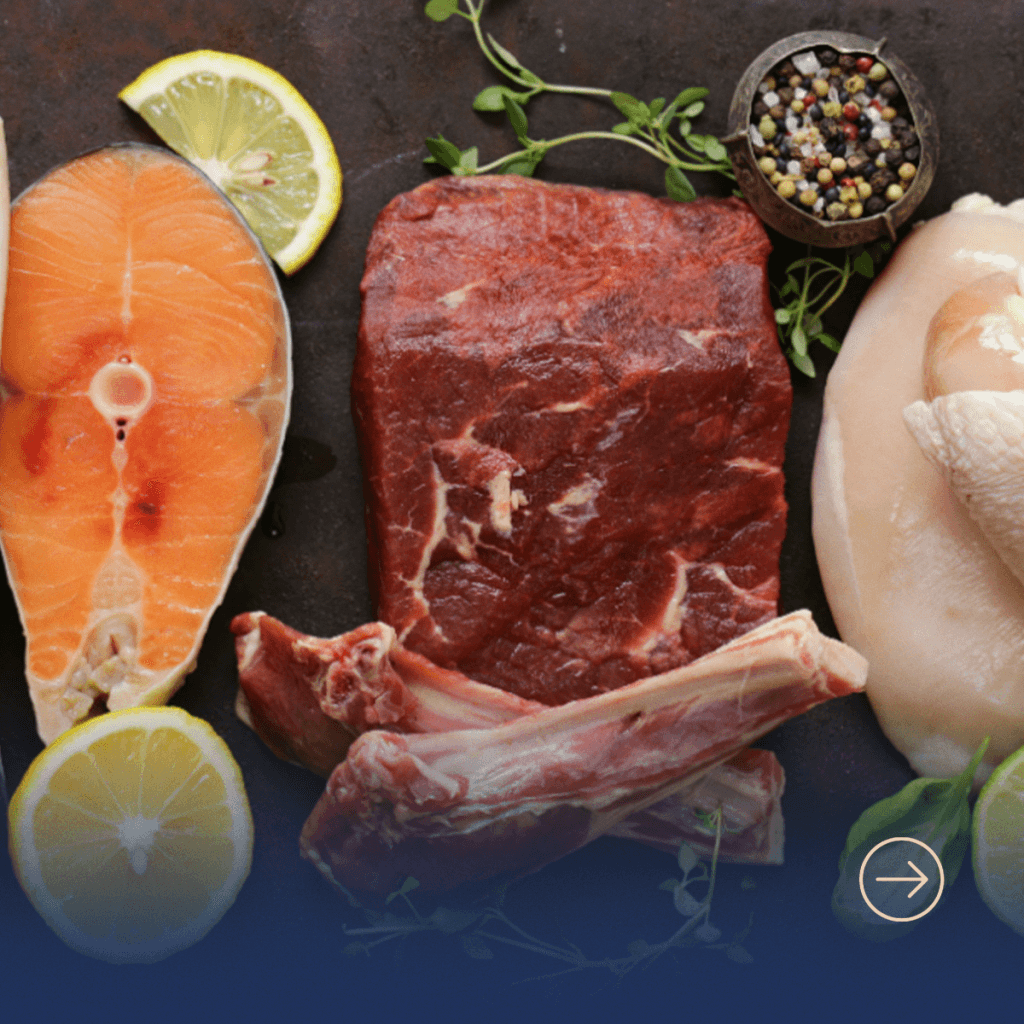Protein is one of the three main nutrients and is responsible for the repair and renewal of cells, tissue and organs in our body, among other things. When we think of protein-rich foods, images of fish, meat and dairy products usually spring to mind. Animal protein sources are indeed excellent for meeting our daily protein requirements.
What are animal proteins?
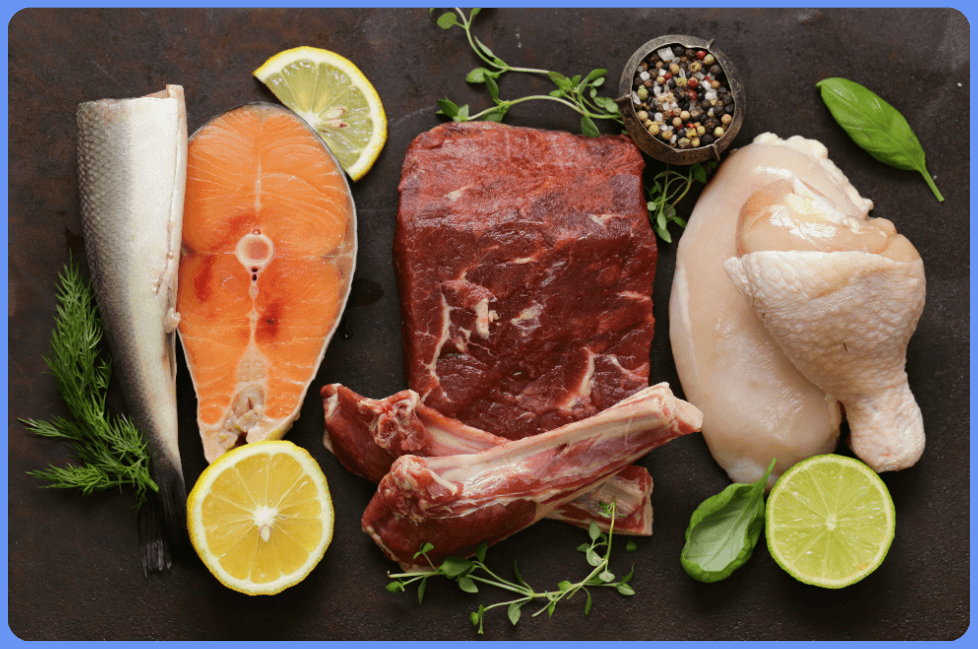
Animal protein is the protein found in animal foods. These are products such as meat, fish, eggs and milk, including numerous derived products such as yoghurt, butter, cheese and quark.
Every animal species, including humans, has its own specific proteins. This is made possible by the ever-changing combinations of the 20 existing amino acids. Each protein product therefore has an individual amino acid signature.
When we humans consume animal protein, it is broken down into the individual amino acids and reassembled into a new, endogenous protein.
What is the biological value of animal proteins?
Animal protein sources have a high biological value, which means that our body can convert them particularly well into endogenous protein. They provide all the essential amino acids in an optimal ratio.
Daminoc® – a product that acts as the body’s own protein thanks to its DNA-identical amino acid profile and is therefore optimally metabolized – also achieves an almost perfect value. This unique composition makes Daminoc a particularly effective supplement for the daily diet.
What are the disadvantages of animal protein?
Excessive consumption of animal protein can have a number of negative effects on health. For example, the consumption of red and unprocessed meat can significantly increase the risk of developing diabetes. It also increases the risk of cardiovascular disease and various forms of cancer.
However, it is always important to remember that it is the quantity that makes the poison. If animal protein sources are consumed in moderation and if particularly low-fat products such as fish or poultry are chosen, consumption is hardly a cause for concern.
Top 10 best animal protein sources
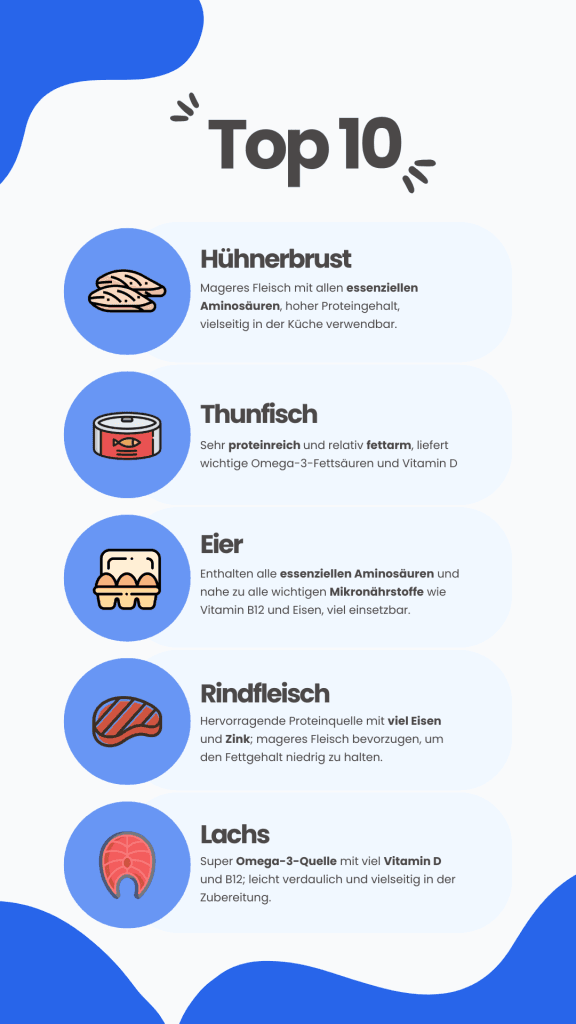
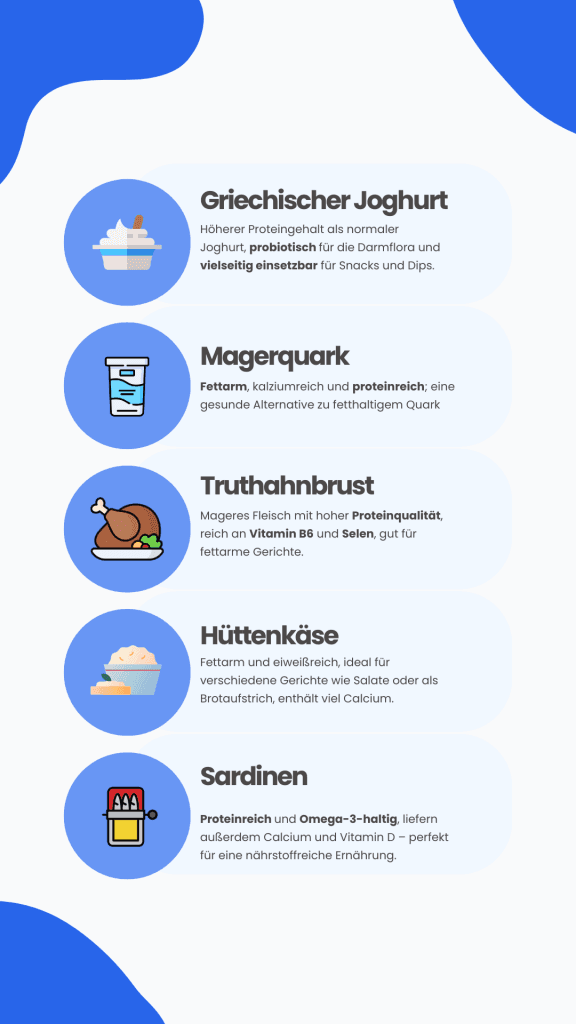
In the debate about the best animal protein sources, the importance of a balanced diet emphasizes that supplementing with high-quality proteins can be crucial.
How sustainable is the consumption of animal protein sources?
For more and more people, a sustainable and environmentally friendly lifestyle is becoming an increasingly high priority. So we are taking a closer look and trying to consciously choose foods that cause less damage to our environment.
However, animal foods are usually the opposite in this respect.
There are a number of reasons for this.
The production of animal-based foods, especially meat, often has a significant impact on our environment. Among other things, keeping animals for fattening contributes to deforestation and increases greenhouse gas emissions. Livestock farming also requires an enormous amount of water. Red meat, such as beef, is considered to be particularly resource-intensive.
Apart from this, it should also be noted that animal welfare is increasingly being neglected due to our growing demand for meat. The conditions under which animals are kept and slaughtered can vary greatly and it is often difficult to ensure that ethical standards are met.
Overall, however, the sustainability of consuming animal protein sources is heavily dependent on the production method, eating habits and our choices at the supermarket. Those who consciously choose food that respects the environment and animal welfare do not have to give up meat and other animal protein sources and can still help to reduce their ecological footprint and protect the environment and animals.
Conclusion
In summary, animal protein sources are an excellent way to meet your daily protein requirements. As long as care is taken to consume red meat in moderation and to choose products that are lower in calories and fat. For those who want to further diversify their protein intake or are looking for additional support in meeting their protein needs, Daminoc® offers a practical solution. It effectively supplements the diet by providing high-quality proteins that help optimize health and performance without placing unnecessary strain on the body.
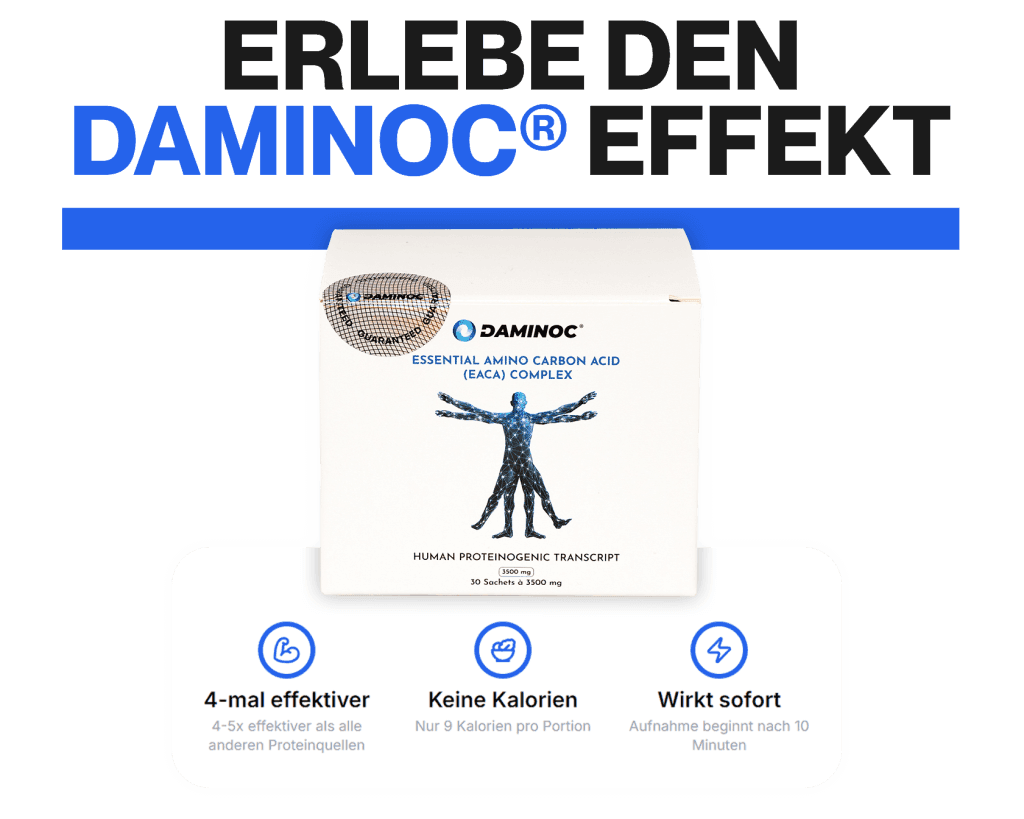
Frequently asked questions:
What are animal protein sources?
Animal protein sources are protein-rich products of animal origin, such as meat (chicken, beef, pork), fish, eggs, dairy products, poultry or seafood.
Are animal protein sources bad?
No, animal protein sources are not bad per se. They can be a high-quality source of protein and provide essential nutrients such as vitamin B12, iron and omega-3 fatty acids. However, a balanced diet is important and the consumption of animal products should always be in moderation. Excessive consumption of processed meat or high-fat animal products can cause health problems.

